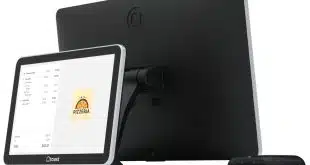Green Dot Corp. late Monday removed a big source of uncertainty about its near-term future by announcing a five-year renewal of its contract with Wal-Mart Stores Inc. to be both program manager and issuer of the Wal-Mart MoneyCard prepaid product.
But while the deal secures a major source of revenue for Green Dot, the company also said it will cease disclosing the commission it pays Wal-Mart on the card’s volume. Indications are, however, that the new deal carries a somewhat higher cost for Green Dot.
The new agreement, which commences retroactively on May 1, 2015, includes an automatic two-year extension that could stretch the deal until May 2022. Green Dot Bank, the Provo, Utah, institution that has issued the card since 2013, and its parent Green Dot Corp., program manager since 2007, had been operating on a seven-month extension that was due to expire at the end of this year.
Wal-Mart is a crucial distributor for Green Dot, accounting for 40% of the company’s revenue in the first quarter through a variety of products. MoneyCard alone accounted for a 29% share in the quarter. Those shares have declined steadily over the years but remain significant to the Pasadena, Calif.-based company, which maintains an office in Bentonville, Ark., where Wal-Mart is based.
At the same time, Green Dot has sustained lost volume and revenue through its decision early this year to shut down its popular MoneyPak product, which allowed consumers to load prepaid cards and make money transfers but was also a target of fraudsters.
“We’re very pleased to serve Wal-Mart,” said Steve Streit, Green Dot’s chairman and chief executive, during a conference call Monday to discuss the MoneyCard renewal. “Because of Wal-Mart, Green Dot will be better able to re-invent financial services for the masses.”
“We don’t have anything to add outside of Green Dot’s press release today,” said a Wal-Mart spokesperson in an email to Digital Transactions News.
During the call, Mark Shifke, Green Dot’s interim chief financial officer, told analysts the company will no longer disclose the commission rate paid to Wal-Mart on the MoneyCard product. The rate is levied on card sales and reload volume. Shifke said the reasons for the decision are that the 5-year agreement removes the atmosphere of uncertainty regarding whether Green Dot would continue issuing and managing the card and that the program represents a declining portion of the company’s overall revenue.
Nonetheless, in answering analysts’ questions Streit did say the revenue share would be “flat for the entire seven-year term whether we issue one card or a zillion cards.”
When an analyst estimated that the commisson rate would increase about 6% under the agreement, Streit answered that this is “a fair piece of math.”
“It’s a pretty clean agreement,” Streit said. “Nothing at all unusual. What is unusual is its simplicity. We know each other as partners better so we’re able to behave with each other more comfortably.”
And, he added, “We now have a more certain path forward.”
Wal-Mart overall accounted for 54% of Green Dot’s revenue last year, down from 64% in both 2013 and 2012, according to Green Dot’s 2014 10-K filing with the Securities and Exchange Commission. MoneyCard revenues for those years, respectively, represented 38%, 45%, and 49% of total company revenue.
In unrelated news, Green Dot also announced it would repurchase as much as $150 million of its common stock, pending regulatory approval. The shares, which trade on the New York Stock Exchange, soared almost 30% overnight on the news of the renewal with Wal-Mart and the stock buyback, reaching a pre-market price Tuesday morning of $19.65 a share.





